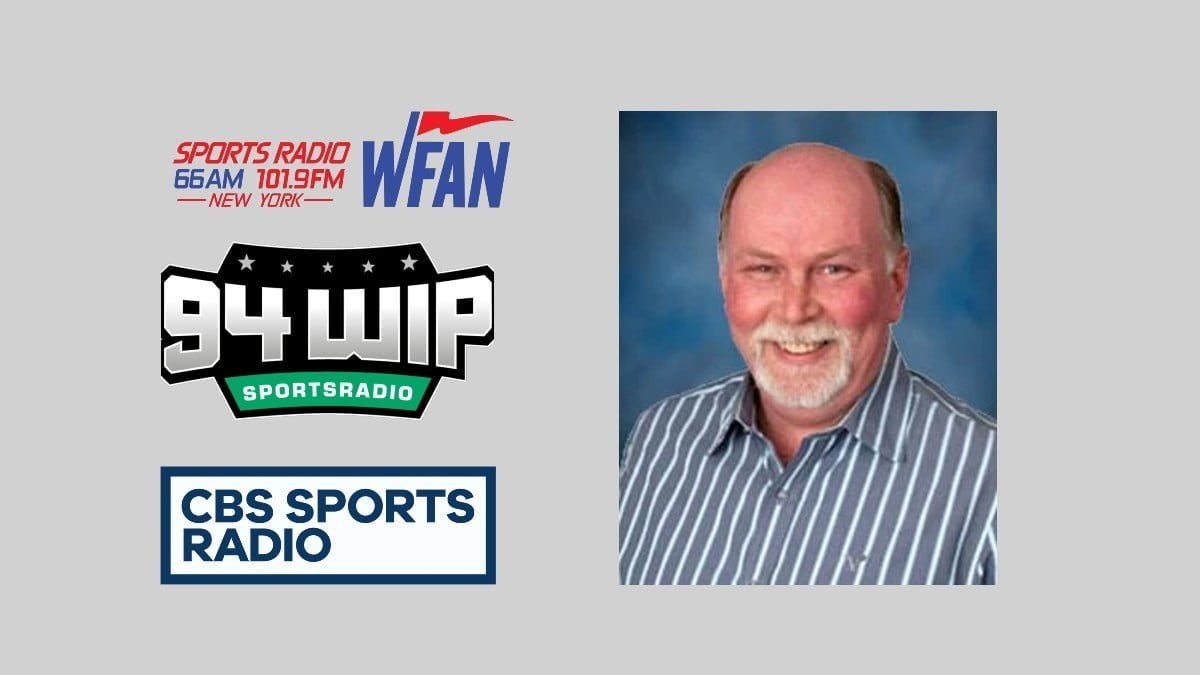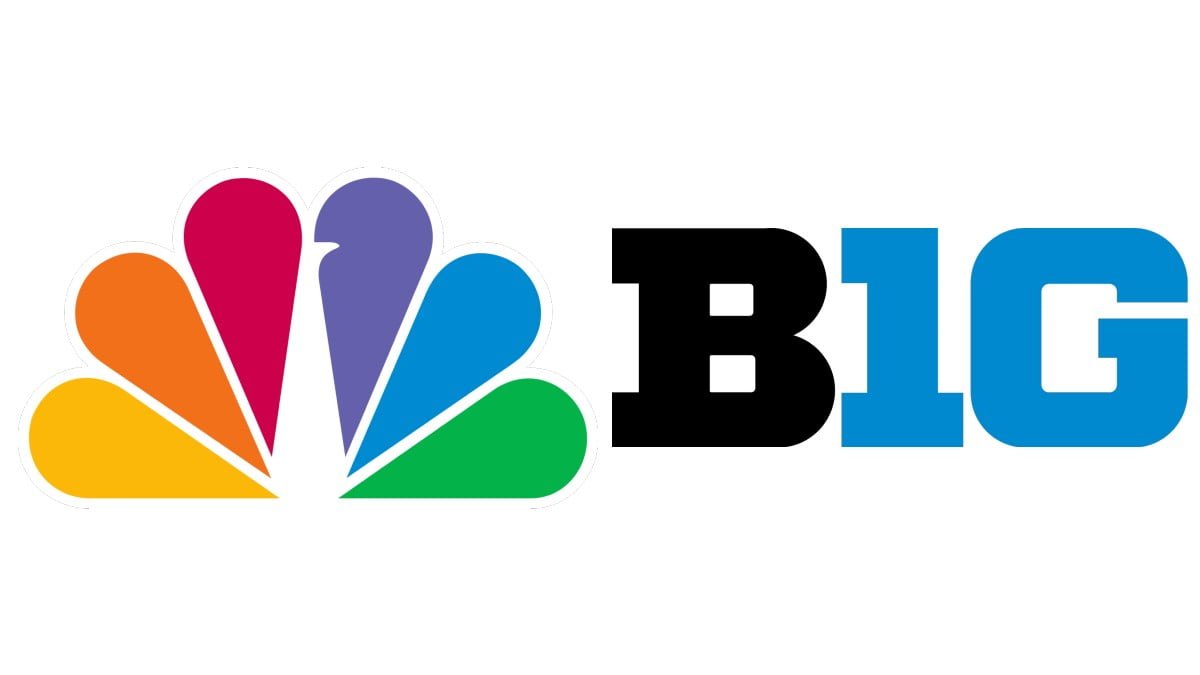When WFAN launched on July 1st, 1987 as the first all-sports radio station, the collection of hosts included Jim Lampley, Greg Gumbel, Pete Franklin, and Steve Somers. The weekend lineup featured 25-year-old Jody McDonald who made a name for himself manning the
overnights.
35 years later, Jody McDonald is still talking sports.
“If I was going to keep doing it, yes, I thought I could outlast everybody else because I started younger than everybody else,” said McDonald, who is a part-time host at WIP in Philadelphia and nationally on CBS Sports Radio.
“A couple of guys have just taken the retirement route of late so yes I’m kind of the last man standing.”
WFAN went through some growing pains early on, but when they switched frequencies from 1050AM to 660AM, the addition of the “Imus in the Morning” show changed the fortunes of the radio station. Eventually, the station would be anchored by the iconic Mike and the Mad Dog during afternoon drive and Boomer and Carton (now Boomer and Gio) in the mornings.
35 years later, WFAN is still going strong today.
“It’s something I put a lot of pride into because it was the first to ever do it,” said McDonald. “The fact that WFAN was first and I happened to be there on day one and yeah we opened up a lot of doors for a lot of other people in the industry.”
After WFAN launched, it led to other markets around the country adopting the all-sports format. Eventually, national all-sports networks were born including ESPN Radio, Fox Sports Radio, and CBS Sports Radio.
From the beginning, McDonald felt like all-sports radio could work in the Big Apple, but he was surprised by the growth around the country.
“I thought local could work in New York because it is as big as it is,” said McDonald who still fills in on WFAN and does a daily show Birds365 on Jakib Media’s YouTube channel.
“I actually did think that it would work as a 24-hour, 7 days a week and 365 days a year thing. Could I have projected that it would catch on and become the monster that it is across the entire country with networks and different multiple outlets…no, I never thought something like that could happen.”
During those early years on WFAN, McDonald delivered a unique brand of sports talk that included reading the baseball box scores and talking about professional wrestling and horse racing.
In a lot of ways, his show was ahead of its time endearing him to a niche group of listeners because a big part of sports talk today involves fantasy sports and gambling.
“Always been a horse racing fan…still am to this day,” said McDonald. “I just jumped on board and said I enjoy watching horse racing and I think I can handicap and make myself a couple of bucks.”
Before there was fantasy baseball (and other sports), there was “rotisserie baseball” and McDonald would spend part of the overnights ripping the box scores off the wires and reading them on the air for lose listeners who were rotisserie players.
“I was a forerunner in fantasy baseball,” said McDonald. “I would go through the box scores on the air because you’re looking to fill time at 3 o’clock in the morning. A lot of people were beholden on their newspaper for their box scores the next morning and not all of the west coast games made it in. You think about that now and everybody has the box scores on their phone. Some people didn’t like the fact that I paid as much attention to it as I did and some
people loved it.”
McDonald was exposed to sports at a very young age because his father, Joe McDonald, was a long-time employee of the New York Mets. Jody spent a lot of time at Shea Stadium and in Florida at Spring Training so it didn’t take long for the juices to start flowing and for him to get the itch himself for a career in sports.
“When your father is in sports for a living and he started with the Mets in 1962 the year I was born, yeah you can say that my father’s occupation made me a sports fan, said the younger McDonald. “Because of my father being in professional baseball, that drove me. I knew I wanted to get into sports in some way shape or form.”
Jody’s father moved up the ladder in the Mets organization.
He started in 1962 working with the minor league clubs before eventually becoming the Director of Scouting in 1967. Then, in 1968, McDonald became the Mets’ Director of Minor League Operations. In 1974, McDonald was promoted to be the Mets’ new General Manager, a position he had until 1978.
It was during his tenure as General Manager when McDonald was instructed to trade the Mets’ franchise player Tom Seaver. On June 15th, 1977, McDonald traded the future Hall of Fame pitcher to the Cincinnati Reds in exchange for pitcher Pat Zachry, outfielder Steve Henderson, infielder Doug Flynn, and outfielder Dan Norman.
Jody does get a call about it from time to time, but could you imagine if social media was around in 1977?
“I am so thankful that my father did not trade Tom Seaver while there was Twitter,” said McDonald.
“Because if it was, yes, I think I would have gotten wholly crushed. Every once in a while, I would get a call on the air ‘Hey Jody, do you think I forgot your father traded Tom Seaver?’ He was told he had to trade Tom Seaver by his bosses. It wasn’t his idea but he had to do what he was told and ordered to do. Yeah, I’d be dealing with that on Twitter on a day in day out basis, I’m sure.”
Since we’re on the subject of modern technology, the landscape of sports talk radio has certainly changed from the early days to where it is today. The average sports fan has more information than ever at his or her fingertips with news, stats, and scores on a mobile device. So, if a sports fan is going to tune into a sports talk radio show, they’re going to want to listen to a host that is prepared and is going to give them something that they don’t already have.
Through the years, in both local and national radio, McDonald has adjusted to the changing times.
“You need to be on top of everything all of the time,” said McDonald. “The knowledge that you have to have has to be more well spread because everybody’s got it with the internet being as readily accessible to everybody, you have to know a little bit of everything and you have to be opinionated. If you’re not opinionated, you shouldn’t be doing the job.”
Jody McDonald has been doing the job for 35 years. From weekend overnights on the original WFAN roster through the growth of the industry and to where he is now still talking sports with fans around the country and also to his devoted listeners in Philadelphia and New
York.
It shouldn’t come as a surprise that he’s had staying power in the business because sports was always in his blood and because he had the vision to see what sports talk would and should eventually look and sound like.
Peter Schwartz writes weekly sports radio features for Barrett Media. He has been involved in New York sports media for over three decades, and has worked for notable brands such as WFAN, CBS Sports Radio, WCBS 880, ESPN New York, and FOX News Radio. Peter has also served as play by play announcer for the New Yok Riptide, New York Dragons, New York Hitmen, Varsity Media and the Long Island Sports Network. You can find him on Twitter @SchwartzSports or email him at DragonsRadio@aol.com.







